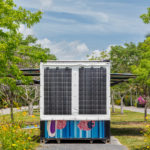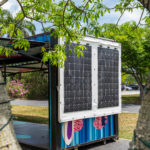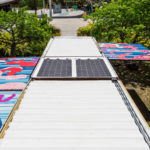Company:
Pvilion
Project Details
Fabric 1
Vinyl-coated polyester
Producer/Manufacturer:
OTHER
Primary Use:
Main Fabric
Design Company
Pvilion Technologies, NY
Fabrication Company
Pvilion Technologies, NY
Project Manager Company
Pvilion Technologies, NY
Installation Company
Pvilion Technologies, NY
Please describe the project specifications
Our company designed, engineered, and fabricated a custom solar fabric canopy with power storage and charging station for the Atlantic Council’s Adrienne Arsht-Rockefeller Foundation Resilience Center’s Community Resilience Pod. The use of our lightweight solar fabric rather than traditional solar panels has provided them with an innovative solution that allows for flexible set-up and easy transit. The solar fabric canopy will offer the Resilience Pod upgraded power storage and charging stations for visitors to use while they explore the Pod, as it tours different communities throughout Miami. It is lightweight, flexible, and folds up conveniently when it is time to relocate the Pod.
What is unique or complex about the project?
This project is unlike any others our company has worked on in the past year. The Atlantic Council’s Adrienne Arsht-Rockefeller Foundation Resilience Center’s Community Resilience Pod was originally a shipping container donated by the Mediterranean Shipping Company (MSC) that has been transformed into a mobile structure that serves many different purposes in the community. It is used to raise climate change awareness and education in resilience. It is also designed to assist in natural disasters and emergency scenarios throughout South Florida. The Atlantic Council’s Director of Strategic Partnerships, Rosemary Mann, said that the renewable energy source that we have provided is an essential component of their Pod. She has stated, “the system demonstrates the importance of individual and community resilience. The advantage of an independent power source supports both our ongoing mobile programming and our future disaster response efforts- where our most underserved residents can charge their devices to stay connected.”
Content is submitted by the participant. ATA is not responsible for the content descriptions of the IAA award winners.
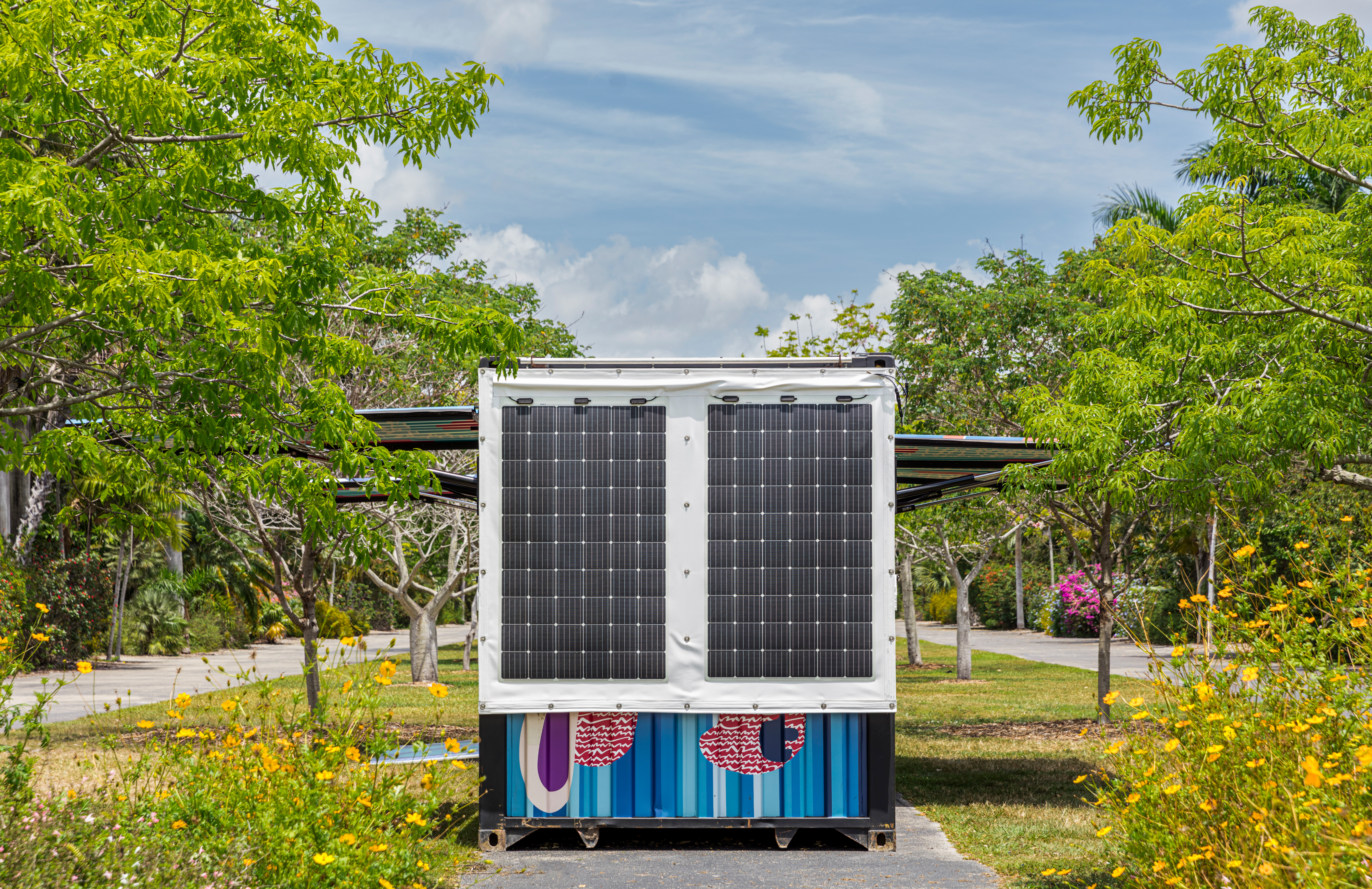
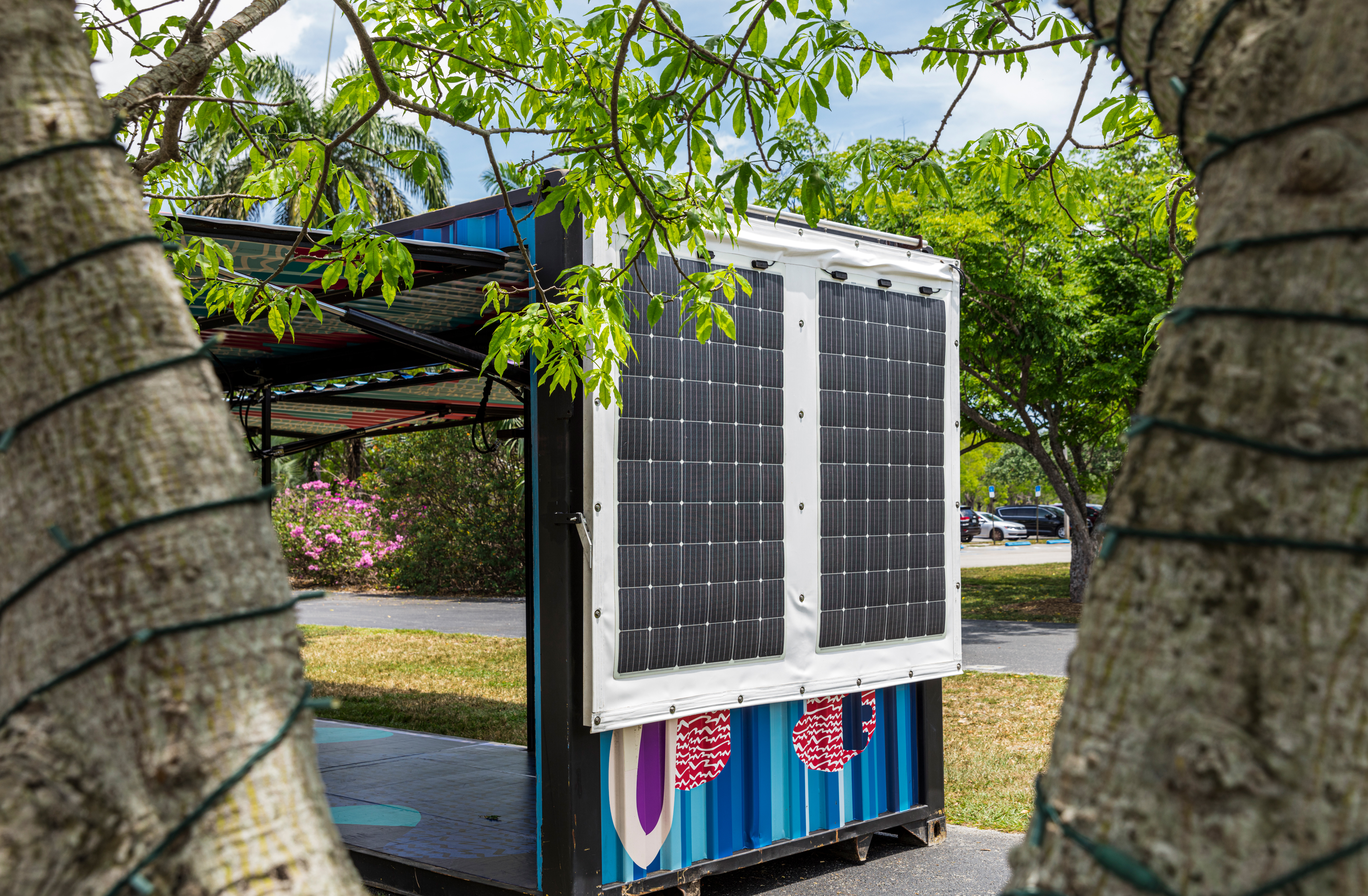
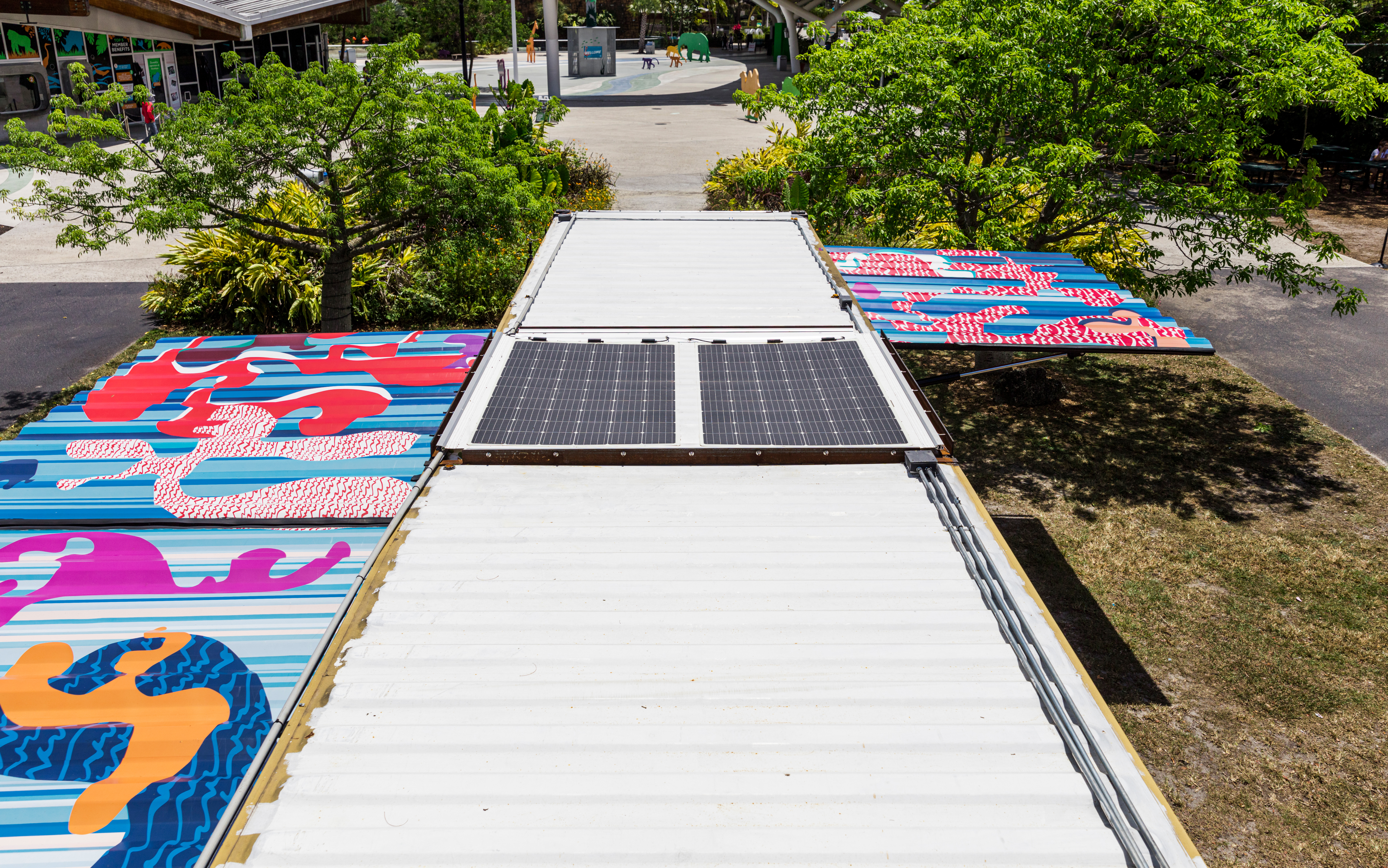
 TEXTILES.ORG
TEXTILES.ORG



